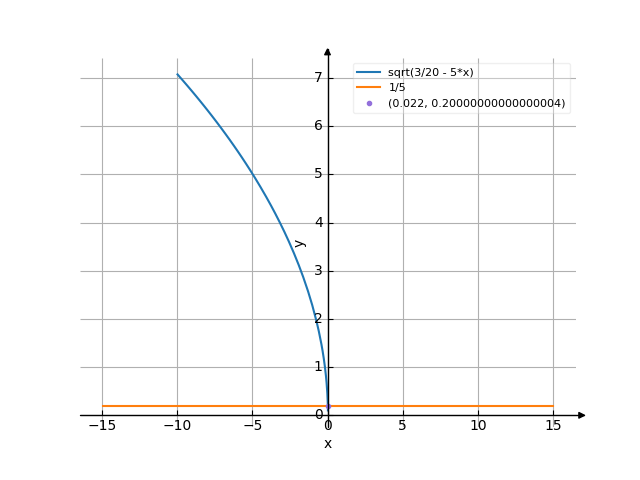You entered:
sqrt(((3)/20-5x))=0,2
What you mean?
sqrt(((3)/20-5x))=0,2 equation
The teacher will be very surprised to see your correct solution 😉
The solution
Detail solution
Given the equation
Because equation degree is equal to = 1/2 - does not contain even numbers in the numerator, then
the equation has single real root.
We raise the equation sides to 2-th degree:
We get:
or
Move free summands (without x)
from left part to right part, we given:
Divide both parts of the equation by -5
We get the answer: x = 11/500
The final answer:
Because equation degree is equal to = 1/2 - does not contain even numbers in the numerator, then
the equation has single real root.
We raise the equation sides to 2-th degree:
We get:
or
Move free summands (without x)
from left part to right part, we given:
Divide both parts of the equation by -5
x = -11/100 / (-5)
We get the answer: x = 11/500
The final answer:
The graph


![Solve the equation sqrt(((3)/20-5x))=0,2 (square root of (((3) divide by 20 minus 5x)) equally 0,2) - Find the roots of the equation in detail step by step. [THERE'S THE ANSWER!] sqrt(((3)/20-5x))=0,2](/media/krcore-image-pods/176/hash/equation/9/b1/e89c16f8e5bbbc40e2b95a997bd99.png)
 Equation sqrt(((3)/20-5x))=0,2
Equation sqrt(((3)/20-5x))=0,2
 Equation ctg(x)
Equation ctg(x)
 0,2
0,2